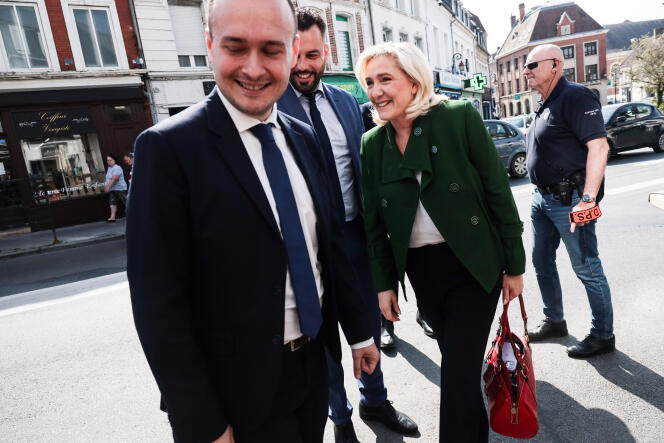


Could the Rassemblement National (RN) turn one of its weaknesses, the environmental issue, into an electoral asset? The far-right party certainly thinks so. It sees environmentalism and the inevitable adaptation measures to global warming as a major divide for the years ahead and a divisive national theme to exploit, as it has successfully accomplished with immigration.
As one party official involved in the discussions put it, by refining its environmental doctrine, the RN is trying to "reawaken the divide" between urban dwellers and the rural and semi-urban world that makes up the bulk of its voter base. Until now, "localism," a concept inspired by the far-right identitarian movement and based on the dogma of borders, had been the RN's almost sole talking point. But the term is likely to take a back seat behind "common-sense ecology," which the party will oppose to what it calls "punitive ecology." "The ideology [of environmentalists] is the fight against humans," Marine Le Pen argued on May 1, claiming to represent a "much more effective ecology that respects the balance between human activity and nature."
In other words, the RN intends to oppose anything threatening to disrupt the lifestyles and consumption patterns of French people and that is decided – be it in Paris or Brussels – in the name of mitigating greenhouse gas emissions and adapting to climate change. The populist agrarian BBB party (Farmer-Citizen Movement) was able to use this model to come out on top in the Dutch elections last November. Likewise, in Spain, the far-right Vox party is vying for the agriculture portfolio in regional governments.
Since April, and under the leadership of Andréa Kotarac, an adviser to Le Pen and the co-founder of the micro-party Les Localistes, a dozen people have been working to create a booklet summarizing their proposals on this issue by the fall. This group, composed of senior civil servants and engineers – but no climate experts – also includes several RN elected officials, from local councils or the European Parliament, in addition to young activists. The aim is twofold, explained Kotarac, who said he was working on the issues of mobility, energy, biodiversity and agriculture: "We're looking for overall coherence because the environment cuts across everything. We've had some great ideas, but now we need to translate them into concrete proposals for legislation and into figures. The other objective is to offer a new reading of the balance of power on ecology. We need to explain why Sandrine Rousseau [Green MP for Paris] is not our friend."
You have 78.87% of this article left to read. The rest is for subscribers only.
